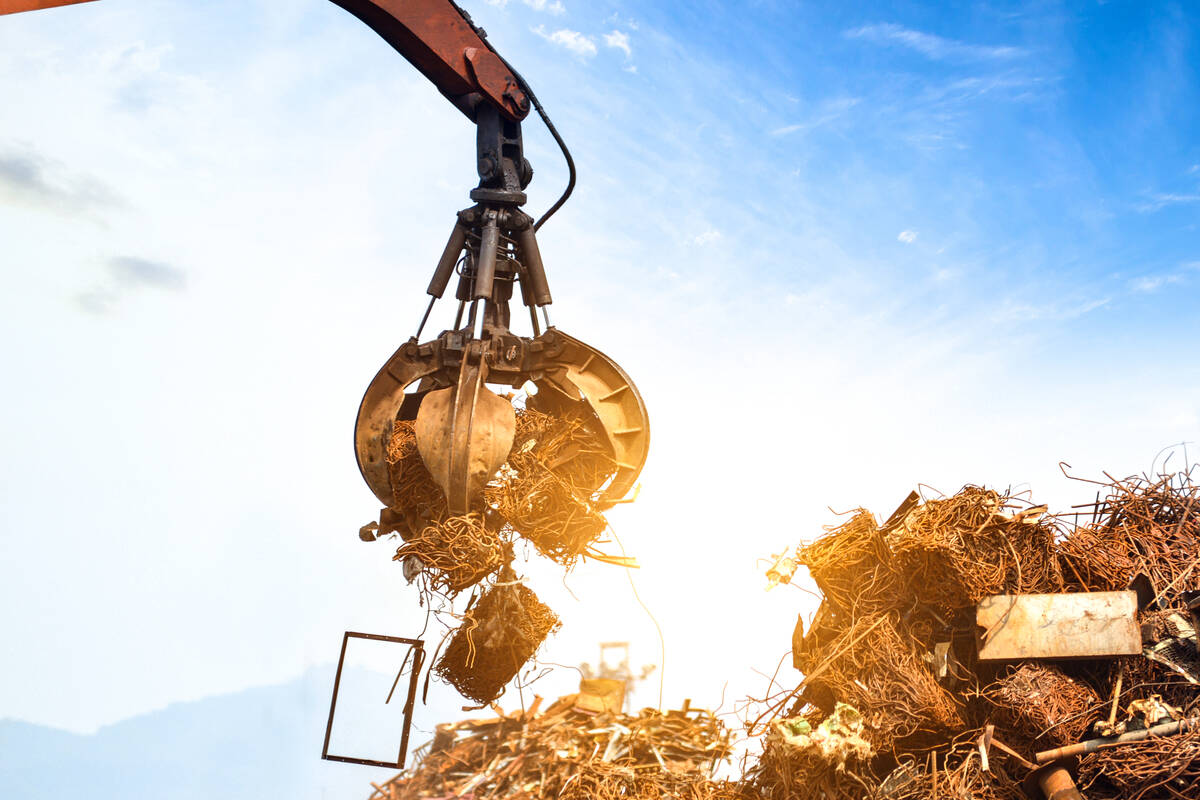One of the major participants in the global real estate development landscape is Turkey. Turkish construction businesses undertake projects in Europe, Asia, and Africa in addition to their nation. Over the past few years, a construction company in Turkey has occupied roughly 40 spots on the yearly list of the 250 biggest international construction businesses published by the American magazine Engineering News-Record (ENR).
Over the past century, Turkey’s construction industry has developed in a dynamic way that has greatly influenced the socioeconomic landscape of the country. The sector has been a driving force behind Turkey’s economic advancement from its early stages during the Republic’s founding to its current state of dynamic growth and innovation. It has adapted well to changes in the political environment and embraced a variety of cutting-edge technological advancements during its revolutionary journey.
The construction company in Turkey has undergone a profound technological metamorphosis, ushering in unprecedented efficiency and sustainability. The industry’s broad use of creative construction techniques is at the vanguard of this technological transformation, establishing Turkey as a global leader in the smooth assimilation of state-of-the-art technologies.
Furthermore, the Turkish construction industry has just started an exciting new chapter in its history by embracing 3D printing technology, which represents a fundamental change in the industry’s perspective on construction methods. This game-changing trend has the potential to completely change the industry by making it possible to build complicated structures quickly and affordably, which will allow for the unsurpassed accuracy and efficiency of realizing elaborate architectural concepts.
By strategically incorporating 3D printing technology, the industry demonstrates its dedication to adopting disruptive innovation and state-of-the-art solutions, placing it at the forefront of the global construction industry’s technological advancement and bolstering its competitive advantage in a technologically complex and ever-changing market.
Table of Contents
Key Milestones and Transformative Phases
The Turkish construction industry’s dynamic trajectory has been interspersed with revolutionary stages that mirror the country’s changing economic policies and strategic ambitions. In the 1980s and 1990s, privatization and deregulation were implemented, creating an atmosphere that encouraged foreign investment and the expansion of private construction companies, which in turn spurred previously unheard-of sectors’ growth and innovation (Eren & Atik, 2017). This critical period created a competitive environment that launched Turkey into the international construction market and set the stage for a paradigm change.
The accomplishment of ground-breaking infrastructure projects that not only completely changed Turkey’s physical environment but also cemented its place as a vital participant in the development of regional and global infrastructure is a noteworthy characteristic of this age. A remarkable engineering achievement, the Marmaray Tunnel (1997–2013) is a shining example of the country’s dedication to innovative infrastructure solutions. This underground train link, which links Istanbul’s European and Asian sides, is evidence of Turkey’s technological strength and its resolve to tackle the growing urban issues of the twenty-first century (Global Construction Perspectives & Oxford Economics, 2023).
In a similar vein, the construction of the massive Baku-Tbilisi-Ceyhan Pipeline (2002–2006) demonstrated Turkey’s critical role as an energy transit hub spanning the Mediterranean and Caspian oceans, as well as its strategic geopolitical relevance. This enormous project, which required intricate cross-border cooperation, demonstrated Turkey’s ability to create large-scale energy infrastructure and established the country as a vital hub for global energy trade (PwC, 2023). Turkey’s growing position in the global construction arena and its engineering genius are demonstrated by the effective completion of these significant projects.
In addition, Turkey became a global pioneer in the adoption of construction technology in the early 21st century. Notably, the construction industry has embraced Building Information Modeling (BIM) technology widely; over 70% of projects use BIM methodologies. This has reduced operating costs, simplified intricate construction procedures, and improved project efficiency (Global Construction Perspectives & Oxford Economics, 2023). This deliberate adoption of cutting-edge technologies has given Turkey a competitive advantage and supported the industry’s steady expansion and resilience in the face of international challenges by placing it at the forefront of digital innovation in the construction sector.
11 Top Construction Company in Turkey
Let’s take a look at this list of 11 top construction company in Turkey:
1. Rönesans Holding
This construction company in Turkey was established in 1993 by Turkish engineer Erman Ilıcak in St. Petersburg, Russia; however, the company’s main office is currently in Ankara, Turkey. It is the biggest foreign construction enterprise in Turkey. Rönesans is now ranked eighth in Europe and 24th globally, having been on the ENR’s Top 250 Developers list for the previous 15 years.
Currently, the developer is engaged in 28 different countries’ projects. The highest structure in Europe, the Lakhta Centre in St. Petersburg, is among the most well-known.
The corporation gives its properties’ seismic safety a lot of thought. For instance, a 6.8-magnitude earthquake in Elazığ, Turkey, did not destroy the Rönesan-built municipal hospital.
2. Limak Holding
Since its founding in 1976, Limak Construction has grown into a holding. With operations in 14 different countries, it has grown to be one of Turkey’s biggest construction enterprises throughout its nearly 50-year existence.
Istanbul is home to the holding’s most ambitious structures. The third-largest airport in the world, Istanbul International Airport, was constructed by the developer along with Sabiha Gökçen International Airport. One of this construction company in Turkey’s other notable projects was the 1915 Çanakkale Bridge, which spans the Dardanelles and is the longest medium-span suspension bridge in the world.
3. Tekfen Construction & Installation
Three Turkish engineers launched the business in 1956. These days, Tekfen is a sizable holding company whose operations extend beyond construction; for example, it has been well-known as a major producer of incandescent light bulbs since the 1960s.
This construction company in Turkey is involved in many different industries, including as the chemical and agricultural sectors. While this construction company in Turkey is working on construction projects in several nations (such as Russia and Qatar), the majority of its projects—including the 80,000-seat Atatürk Olympic Stadium and the Istanbul metro—have been completed in Turkey.
4. Yapı Merkezi
Istanbul’s Yapı Merkezi is a well-known construction company that specializes in non-residential constructions. Established in 1965, the holding company specializes in European and Asian transportation networks. The Eurasia Tunnel, which spans the Bosporus Strait and is the first two-level car tunnel ever constructed beneath the seabed, and the Dubai Metro, the longest driverless metro system in the world, are two of the company’s most well-known projects.
Yapı Merkezi also takes part in restoration projects; among Istanbul’s most well-known structures, the Galata Tower was restored by the business.
5. Ant Yapı
Founded in 1991, Ant Yapı is a relatively young construction company in Turkey. The company’s primary focus is on global projects, encompassing not only Europe and Asia but also America. In the United States, Ant Yapı and the Italian fashion business Missoni constructed the opulent Missoni Baia residential complex in Miami and also contributed to the renovation of the Crown Building, which was constructed in 1921 and is one of the oldest buildings in New York.
Additionally, Ant Yapı has overseen numerous projects in Russia. For example, the company built multiple skyscrapers at the Moscow City business center and worked on projects at the Domodedovo International Airport.
6. TAV Construction
With over two decades of experience, the company specializes in building airports and associated infrastructure. Among its holdings are airports in Tbilisi, Saudi Arabia, and Doha, Qatar. Fascinating fact: the company specializes in the upkeep and support of already-existing airports, which puts it in a very unique market niche in addition to development.
This construction company in Turkey is involved in numerous major projects around the Middle East. The Times Square Center, the Paramount-designed DAMAC Tower, and the United Arab Emirates’ EMAAR Square are a few of the most prominent projects.
7. ENKA
This construction company in Turkey was founded in 1957 and is involved in trading, real estate, engineering, and electric power. At $10 billion on the Istanbul Stock Exchange, ENKA is one of the most valuable brands in Turkey.
Apart from holdings in Turkey, ENKA has built numerous well-known structures in Russia, such as the Moscow City business center’s skyscrapers and the Krasnye Holmy business center. Numerous industrial, transportation, and medical facilities in Libya, Kazakhstan, Algeria, Croatia, and other countries have been completed by the organization.
8. Mapa Group
This construction company in Turkey conglomerate, known as the MNG Group of Companies until 2020, was founded in 1976 as a combination of businesses involved in telecommunications, aviation, and construction. The majority of Mapa’s projects are in the Middle East and Africa, where the company is constructing transportation hubs, airports, and water systems.
The company gained recognition in the early 2000s for constructing hotels in Antalya that were unlike anything else in the world. The structures were exact reproductions of notable architectural sites, such as the Moscow Kremlin and Istanbul’s Topkapı Palace.
9. Sinpaş GYO
This construction company in Turkey is essentially a residential developer, as opposed to the developers mentioned above. The company was established in 1974 and has long since been building residential complexes in Istanbul, Ankara, and other Turkish towns.
With more than 75 projects completed successfully, Sinpaş GYO has a large portfolio. The developer’s primary tenet is the importance of green spaces. The Sinpaş GYO apartment complexes are invariably encircled by plazas, gardens, canals, and even swimming pools.
10. IC Holding
In 1969, this construction company in Turkey was established. Its primary industries are building, electricity production, and tourism. At now, IC is involved in the construction of Turkey’s first nuclear power plant, Akkuyu NPP. Under the administration of the IC Hotels network, the holding’s development branch specializes in building opulent five-star hotels in Turkey’s resort cities.
11. Alarko Holding
It is among Turkey’s oldest construction enterprises, having been established in 1954. There are 24 subsidiaries under the Alarko group, including one abroad. The primary areas of business include energy engineering, building and development, pumping and air conditioning equipment manufacturing, cinema design and construction, nightclub construction, and hotel construction. The corporation has several sizable development projects in various regions of Turkey planned for 2020. The company is now working on numerous projects, such as shopping centers, dams, sewage treatment plants, resort complexes (a hotel and leisure area by the sea), coal and solar power plants, Istanbul metro amenities, and many more.
Challenges and Resilience
Despite its remarkable rise, the construction company in Turkey has faced some difficult obstacles along the way. The industry has skillfully negotiated a changing environment over time that is full of political unpredictability, economic ups and downs, and complex regulatory nuances, all of which call for a deliberate approach to resilience and adaptive management. Despite these challenges, the industry has shown steadfastness, highlighting its critical role in driving Turkey’s economic growth and overall development.
Construction company in Turkey have shown incredible resilience amid the worldwide economic turmoil brought on by the COVID-19 epidemic, demonstrating their unwavering grit. The Turkish construction sector demonstrated a strong growth rate of 5.2% in 2022, surpassing expectations and showcasing its remarkable capacity for swift adaptation and agile response in the wake of unprecedented challenges, despite the profound impact of the pandemic on global economies (Turkish Statistical Institute, 2022). This tenacious performance confirmed the sector’s status as a cornerstone of Turkey’s economic resilience by highlighting its importance as a major contributor to the country’s economic growth and by demonstrating its adeptness in navigating outside shocks and challenges.
Construction company in Turkey have proactively adopted a range of creative tactics and extensive risk management processes to ensure continued growth and strengthen their foundations in response to the diverse difficulties it has faced. With a growing emphasis on incorporating eco-friendly materials, energy-efficient designs, and sustainable construction methodologies into its project development paradigm, the sector’s resilience framework now focuses heavily on the implementation of sustainable practices (Turkish Ministry of Environment, Urbanization, and Climate Change, 2022). This proactive approach sets a progressive standard for the industry as a whole and not only conforms to global sustainability imperatives but also emphasizes the sector’s commitment to creating ecologically and socially responsible infrastructure solutions.
Additionally, construction company in Turkey’s consistent efforts to foster an innovative and adaptable culture have strengthened its resilience by enabling the smooth integration of state-of-the-art technologies and industry best practices. By embracing digital transformation and cutting-edge construction approaches, the industry has strengthened its competitive edge in a fast-changing global construction scene by optimizing project efficiency, enhancing productivity, and streamlining complicated construction processes. The industry’s unwavering commitment to cultivating a culture of creativity and flexibility has been crucial in maintaining its resilience and driving its upward development trajectory, setting it up for long-term success in the face of the constantly changing dynamics of the world economy.
Current Landscape and Future Prospects
The construction company in Turkey industry is at a turning point, ready to take a radical step forward. We are seeing a strategic alignment of national priorities with the sector’s expanding potential thanks to the Turkish government’s audacious commitment to supporting the sector’s growth and development through a significant budget allocation of 173.1 billion Turkish lire (Turkish Ministry of Finance, 2023). This proactive stance demonstrates the government’s steadfast support for the construction sector and its acknowledgment of the industry’s critical role in driving Turkey’s overall economic trajectory.
The government’s proactive approach to sustainable construction techniques is particularly noteworthy, as demonstrated by the 2022 launch of the “Sustainable Construction Roadmap” (Turkish Ministry of Environment, Urbanization, and Climate Change, 2022). This program marks a new age of environmentally and socially responsible infrastructure development and demonstrates the nation’s commitment to incorporating eco-friendly materials and cutting-edge technologies into the building industry. With a strong focus on environmentally friendly methods, the industry is ready to adopt a comprehensive approach to building that includes energy-efficient designs, sustainable material use, and waste reduction techniques, laying the groundwork for a built environment that is more resilient and ecologically sustainable.
Future developments in advanced robotics, artificial intelligence, and Internet of Things (IoT) solutions promise to completely change the construction industry by bringing about significant improvements in resource management, safety regulations, and operational efficiency. It is anticipated that the smooth integration of these innovative technologies will improve overall productivity, expedite project delivery, and optimize construction procedures, all of which will support the industry’s culture of innovation and excellence. Through the utilization of data-driven decision-making and automation, the construction sector may enhance its competitive advantage in a worldwide market by realizing unmatched operating savings, reducing project durations, and improving quality standards.
Moreover, the construction company in Turkey’s strategic advancement is based on the integration of green building techniques and renewable energy solutions, which is consistent with Turkey’s larger sustainability objectives and its resolve to tackle climate change. Construction projects that use renewable energy sources, including solar and wind, demonstrate the industry’s commitment to environmental stewardship and its role as a catalyst for a more sustainable, greener, and cleaner future. The building industry is in a good position to support a built environment that puts resource efficiency first, reduces environmental impact, and advances holistic sustainability as it adopts green building practices, which include energy-efficient designs, sustainable material utilization, and waste reduction strategies.
Conclusion
Construction company in Turkey’s century-long history is a profound story of unmatched growth and development that has radically shaped the country’s infrastructure and economic environment. With a strong foundation in the pursuit of cutting-edge technological innovations, a resolute dedication to sustainable practices, and well-timed investments, the industry has become a shining example of innovation and resilience, well-equipped to overcome obstacles in the future and drive further expansion.
In light of the country’s centennial celebrations, it is critical to highlight the combined endeavors and steadfast commitment of industry participants, forward-thinking legislators, and the assiduous labor force. Their joint efforts have not only created new heights for Turkey’s construction industry, but they have also established the foundation for a prosperous and sustainable future. As the industry celebrates its rich history and bright future, it becomes clear that Turkey’s construction industry is more than just an indicator of the country’s development—rather, it is a resolute representation of its enduring resilience, inventiveness, and unshakable devotion to quality.
One of the sectors of the Turkish economy that is most active is the building sector. Only a small portion of Turkey’s extensive list of major building businesses are the developers on this list. Many of them have constructed well-known properties that are well-known both inside and outside of Turkey.
Suggested article for reading:
Top 7 Construction Company in Netherlands
Top 7 Construction Company in Malaysia; 2024 Review
Top 7 Construction Company in Luxembourg
Resources:
Statista | BuilderInaction | Linkedin | HouseArch | Turk.Estate | CCTInvestments | EraiTurkey
For all the pictures: Freepik
Related Posts
May 19, 2024
5 Strategies of Change Management Resulted by Digitalization (2024)
Let's discover how to Accomplish Desired Results, Change Management is the…
May 18, 2024
What is Scan2BIM Process Steps (2024)
Let's Investigate how Scan2BIM Models are Very Helpful for Topographic…
May 17, 2024
Automatic Waste Sorting in Construction; 2024 Guide
Discover the Transformative Potential of Automatic Waste Sorting in…









